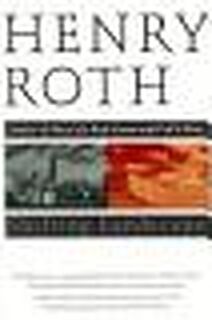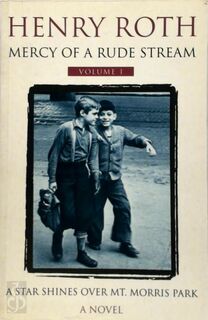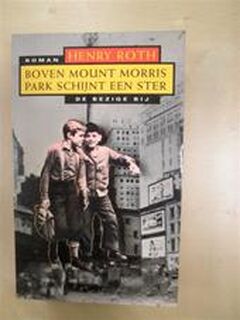Mercy of a Rude Stream
Koop Tweedehands
Koop Nieuw
Ook verkrijgbaar als
Omschrijving
In 1934, Call It Sleep was published, a first novel by a promising twenty-eight-year-old writer by the name of Henry Roth. It was a brilliantly lyrical work that would later be regarded as one of the greatest American novels of this century. But in that dark Depression year, few had money for literature, and the book faded into oblivion, not to be fully roused from its hibernation until 1964, when Call It Sleep was hailed, in the words of Irving Howe, as "one of the few genuinely distinguished novels written by a twentieth-century American." Although the book proceeded to sell millions of copies, both in the United States and around the world, Henry Roth, then a waterfowl farmer in Maine, remained silent, called by some a literary recluse, a man with no second novel in the offing.
Sixty years after Call It Sleep's first appearance, the publication of Mercy of a Rude Stream is a celebratory event in the world of literature, the remarkable reappearance of a literary genius whose language we presumed had been lost, whose urban "world of rooftops and flying kites, of journeys to the marvelous turning bridges over the Harlem River" and "the lofty El curving in a charcoal sweep" we thought we would never glimpse again.
In this first installment of Mercy of a Rude Stream, called "A Star Shines Over Mt. Morris Park," the first of six volumes Roth has already finished, we follow the adventures of a boy named Ira Stigman, and his extended Jewish immigrant family, from the outbreak of World War I through the beginning of the 1920s. With Ira's maternal grandparents, Zaida and Baba Farb, and their nine children, Roth has created an intricate and moving family saga, with Ira always at its center, a young boy tossed on the torrential currents of rude streams issued forth from the uncertainties of early twentieth-century New York City. Alienated from the Jewish Lower East Side of his early childhood by distance and distrust, Ira finds himself alone in "goyish" Harlem, frequently battling other children, his father, and the violence of sexuality. His mother, Leah, trapped and crippled by her own isolation, tries as best she can to shield her sensitive son from the wrath of a rageful, frequently unemployed husband as well as the deceit of the outside world.
As the novel progresses, we follow Ira from a seemingly naive boy of eight to a street-smart, precocious young man of fourteen, burdened not only by the onset of adolescence, but also by the cruelties of public school, poverty, and the pain of life in an alien neighborhood. While the narrative concerns itself primarily with the psychological maturation of Ira, Roth paints Ira's story against the backdrop of America in the teens and early 1920s, and he deals masterfully with such larger themes as Prohibition, anti-Semitism, racism, and cultural deracination, particularly in the final part of the work, set in the basement of the gourmet grocery store Park & Tilford, where the narration echoes both Dante and Joyce.
Told in two voices, the first being the traditional narrator, the second that of the old "Ira" conversing with his computer, Ecclesias, about "the fragments of his past," and searching for the writer's voice that had eluded him for nearly a half century, Mercy of a Rude Stream is that rare work of fiction that creates, through its style and narration, a new form of art. Indeed, the two juxtaposed voices, the one of the "little boys swimming in a sea of glory," the other of one of those same boys "in old age being rudely swept to sea," create the counterpoint, jarring yet oddly harmonious, that makes this work so original. As Henry Roth ponders his unsought role as one of the great American writers of the twentieth century, his words take on a profoundly deep resonance, for his is indeed the last voice of a generation that we thought was long gone.
Specificaties
- Auteur:
- Uitgever:St. Martin's Press
- ISBN:9780312104993
- Bindwijze:Linnen band met stofomslag
- Aantal Pagina's:290
- Jaar:1994
-
Rubriek:
Recensies
Recensies van onze lezers
Beoordeel dit boek als eerste!
Om een recensie te schrijven moet je zijn.






















